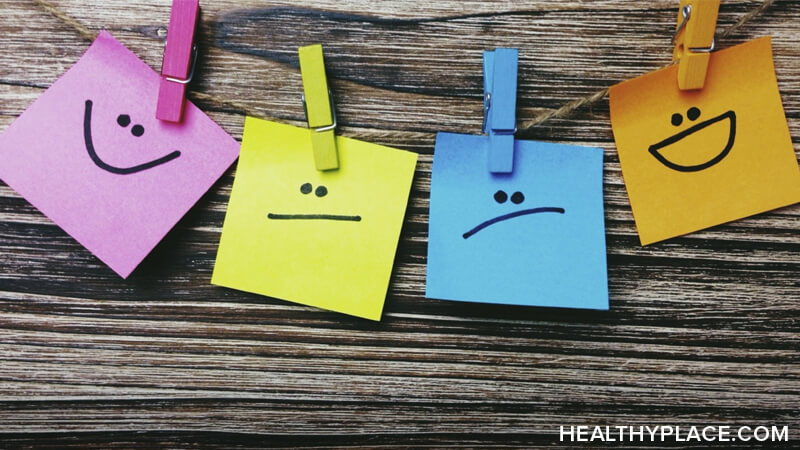Helpful or Unhelpful? A More Effective Approach to Recovery

Is your habitual thinking helpful or unhelpful to your mental health recovery? Today, my therapist completely changed my approach to recovery, and even more importantly, she changed how I see myself and my decisions. With one simple question, she encouraged me to be more compassionate toward myself than I have been in years. I was explaining to her how I tend to get stuck in my mind whenever I feel I've failed or messed up because I sit and think about what I've done wrong, why, and why that makes me a terrible person. She asked, "Okay, but how does that help you?"
It seemed like there was an obvious answer, I just couldn't remember it. It had to help me somehow because this is what I've been doing forever: mess up (or simply think I've messed up), freak out, hate myself, repeat. But I thought and thought until I realized: there is no answer because this is not helpful behavior. I am using behaviors and thoughts that are unhelpful instead of helpful to my recovery.
It's Important to Focus on What's Helpful vs Unhelpful in Recovery
I've been in therapy for five years, and I have never once thought of my recovery in terms of whether something is helpful or unhelpful. Instead, I've always thought of my actions as either good or bad. Of course, I've had therapists notice this and warn me against assigning judgment to every little thing I do, but none of them gave me another acceptable framework to restructure how I think about myself and my actions. So I continued to think of myself in terms of good and bad, and as you might expect, it only led to increased anxiety and depression. I got more and more stuck in my head as my understanding of myself got more black and white, and I found it increasingly difficult to be "good."
What my therapist showed me today, though, is that our actions can be seen through another lens: helpful or unhelpful. This lens is far less judgmental, and it gives me a game plan for recovery: increase or improve helpful behaviors and decrease or deescalate unhelpful behaviors. For the first time in a long time, I feel like my recovery is actually going somewhere.
Helpful Does Not Equal Good and Unhelpful Does Not Equal Bad
When it comes to advice I don't have much to offer since this breakthrough is so recent for me, but I can say this: remember that helpful is not the same as "good" and unhelpful is not the same as "bad." Even though unhelpful behaviors aren't ideal for recovery, they aren't a bad thing. They're just a human thing. In fact, most unhelpful behaviors were helpful at one point.
If it turns out that you have a lot of behaviors that seem unhelpful at first, discuss them with a professional. You may find that, while they are unhelpful now, these behaviors were helpful to you once and you simply haven't found a more helpful alternative. For instance, growing up, my parents had a very "good vs bad" view of the world, and at the time it was helpful for me to adopt this way of thinking to fit into their worldview more easily. Now that I'm on my own, it will be more helpful for me to develop my own worldview, one that is perhaps a little less judgmental.
What do you think? Would reframing your actions as helpful or unhelpful improve your road to recovery? Let me know in the comments below.
APA Reference
Griffith, M.
(2019, June 4). Helpful or Unhelpful? A More Effective Approach to Recovery, HealthyPlace. Retrieved
on 2025, November 28 from https://www.healthyplace.com/blogs/recoveringfrommentalillness/2019/6/helpful-or-unhelpful-a-more-effective-approach-to-recovery